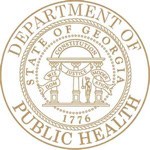 MONTGOMERY-The Alabama Department of Public Health’s Immunization Division is investigating a case of Neisseria meningitidis, also known as meningococcal disease, at Scottsboro Junior High School in Jackson County. No other cases have been identified. Meningococcal B disease is the leading cause of bacterial meningitis in children 2 to 18 years of age in the U.S. The disease can be very serious and even life-threatening if not treated immediately.
MONTGOMERY-The Alabama Department of Public Health’s Immunization Division is investigating a case of Neisseria meningitidis, also known as meningococcal disease, at Scottsboro Junior High School in Jackson County. No other cases have been identified. Meningococcal B disease is the leading cause of bacterial meningitis in children 2 to 18 years of age in the U.S. The disease can be very serious and even life-threatening if not treated immediately.
“Public Health has already began contacting parents and contacts during our investigation to make them aware of the exposure, disease details and to ensure that they make sure that their children are up to date on their vaccination,” said Dr. Karen Landers, Medical Officer for the Northern/Northeastern Districts. “We want to make sure that parents look for the appropriate signs and symptoms, and that they contact their private health care provider or county health department with any questions or concerns.”
Symptoms of meningococcal disease include, but are not limited to, a sudden onset of fever, headache, stiff neck, confusion and sometimes a rash. There is currently a meningococcal B vaccine recommended for teens. In addition, there is a meningococcal conjugate vaccine (MCV4), which protects teens from A, C, W and Y strains. Disease outbreaks typically occur in communities, schools, colleges and other high-risk populations.
“This is a highly contagious disease that is spread to others within 2 to 10 days by contact through respiratory and throat secretions, such as saliva or spit,” said Dr. Landers. “Because of this fact, we have informed parents of steps they need to take to determine if they should take their child to the doctor and to reduce the spread of the disease.”

Public Health recommends the following to parents:
· Ensure all household members are up to date for all age-appropriate vaccines, including two different types of meningococcal vaccines.
· Encourage students and staff not to share items that come in contact with another person’s saliva such as food, drinks, lipstick/balm or cigarettes to help reduce the spread of the disease.
· If children exhibit any signs or symptoms, have them evaluated by their health care provider.
For more information on signs and symptoms of meningococcal disease, or vaccination information, please visit www.alabamapublichealth.gov/
Media Release/Karen Landers, M.D/ALABAMA DEPARTMENT OF PUBLIC HEALTH


